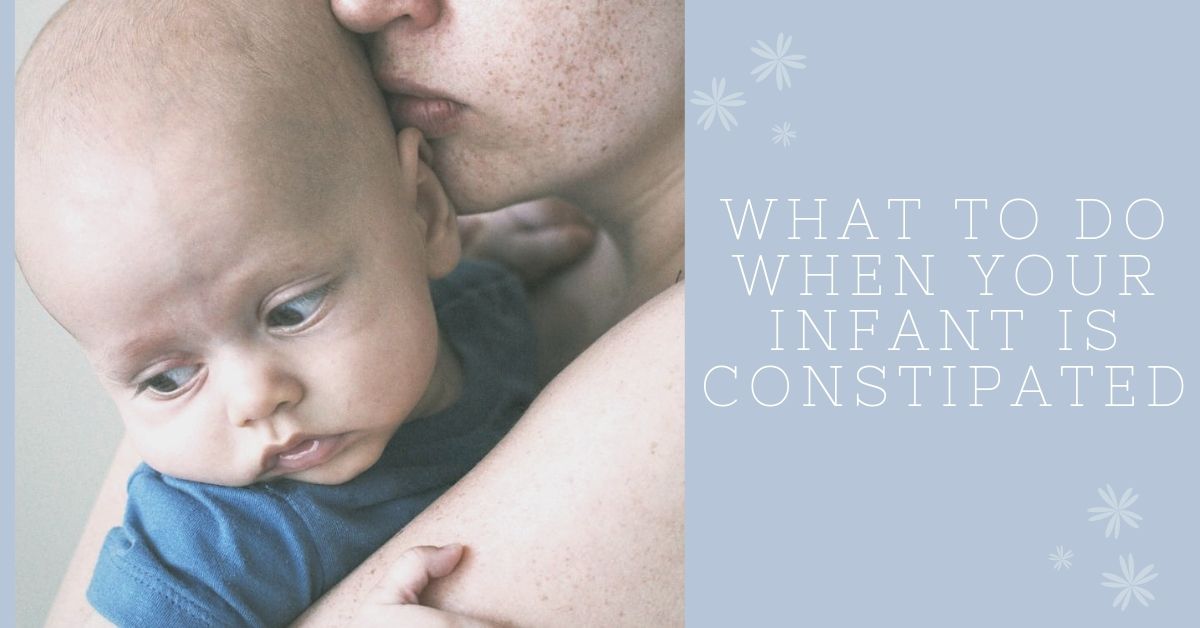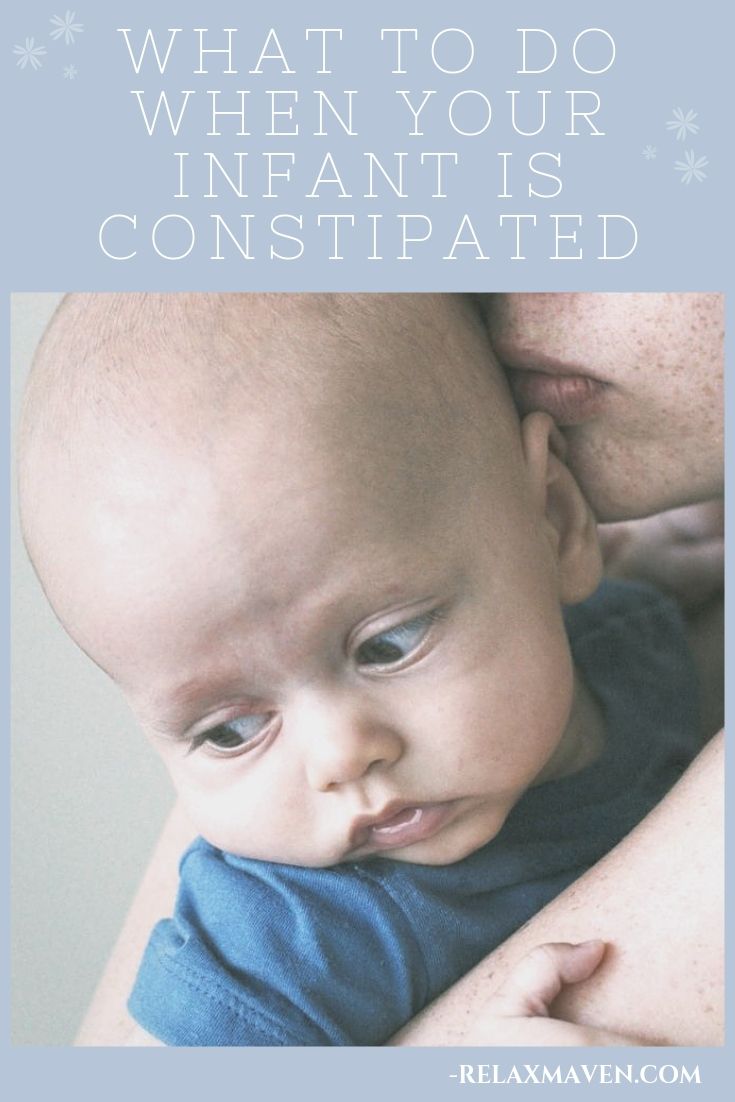
Infants may go for extended periods of time without passing stool, so it can be pretty hard to tell if they’re constipated.
A baby may show some signs of constipation such as hard pellets of stool, a hard belly, lack of appetite, and long periods of crying or straining while trying to have a bowel movement.
Pediatricians will often recommend you trying out a few home remedies first to see if constipation resolves on its own.
Here are 5 things you can do when your infant is constipated:
1. Warm Bath
A warm bath can help relax your baby’s abdominal muscles and help them stop straining. This may also reduce some of the discomforts from straining due to constipation.
2. Hydrate
Babies do not usually need supplemental liquids as they mostly get their hydration needs from breastmilk or formula milk. However, a constipated baby may benefit from a boost of extra liquid. Pediatricians recommend adding water, or sometimes fruit juice, to a baby’s diet when they are over 2-4 months old and are constipated.
3. Exercise
Similar to adults, physical movement and exercise can stimulate a baby’s bowels.
As babies cannot walk yet, you can assist them to exercise by gently moving the baby’s legs in a cycling motion while they’re lying on their back. This will stimulate the bowels and relieve constipation.
4. Massage
You can gently massage the baby’s stomach to help relieve constipation. Use your fingertip to make circular motions on the stomach in a clockwise pattern. Hold the baby’s knees and feet together and gently push the feet towards the belly region, then stroke the baby’s rib cage down past the navel with the edge of a finger.
5. Dietary Changes
Making some dietary changes may help relieve constipation, but these will differ depending on the baby’s diet and age.
If you’re still breastfeeding, you can avoid some foods such as dairy and see if it has an effect on the baby’s constipation. For babies that are formula-fed, you may want to switch to a different kind of formula with your pediatrician’s advice. If your infant is already eating solids, you can consider introducing more fiber-rich foods, such as whole grains, plums, peaches, skinless apples, broccoli, and pears.
Read the full article by Medical News Today here for more advice on what to do when your infant is constipated.



